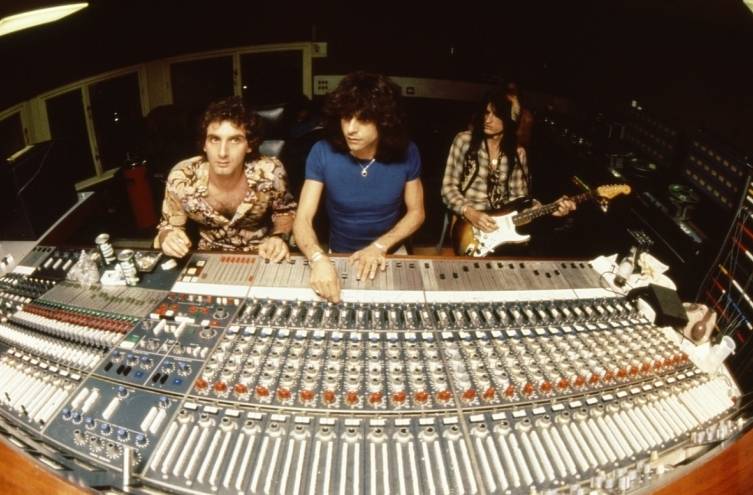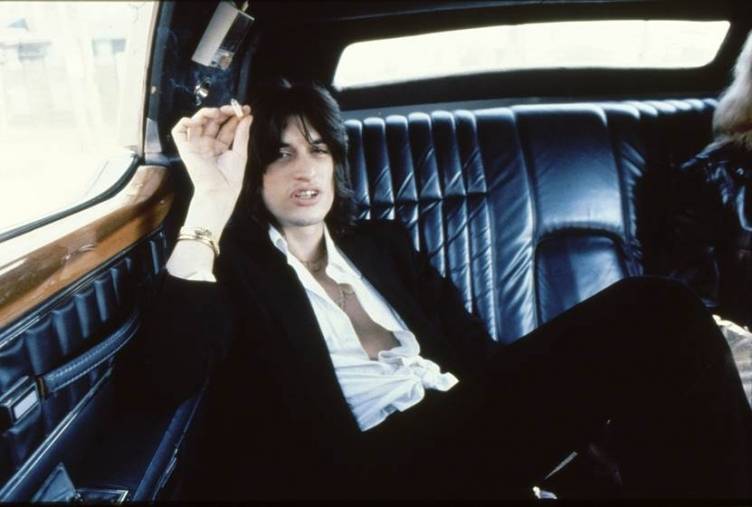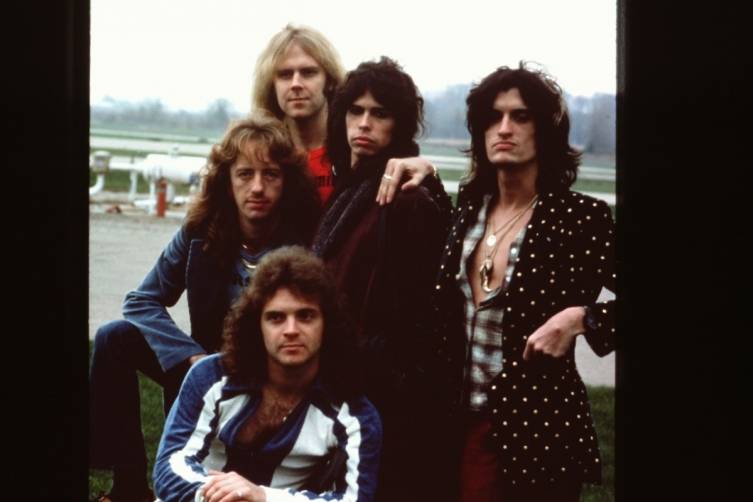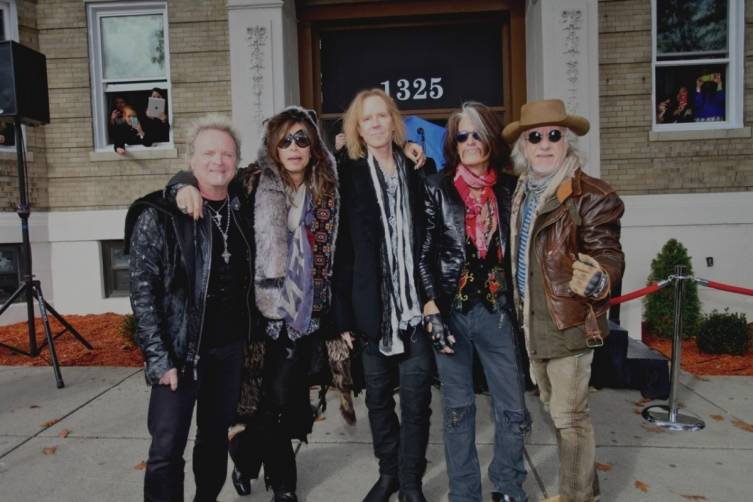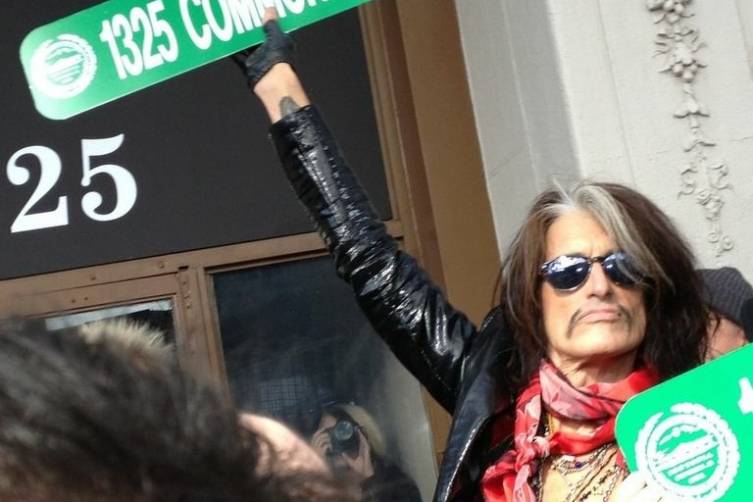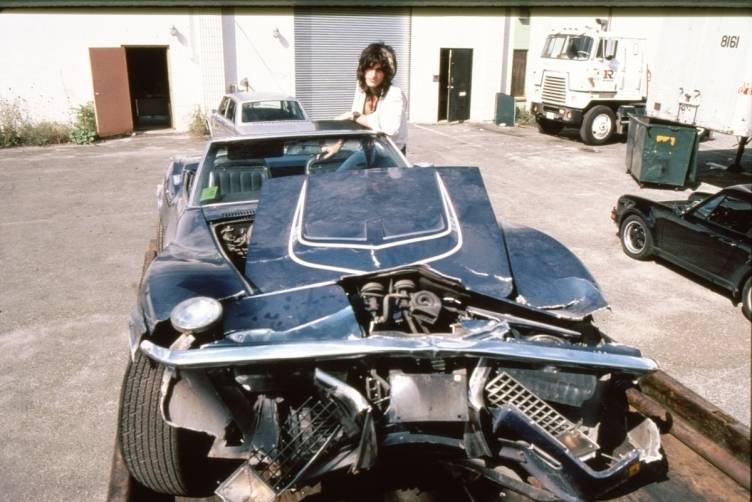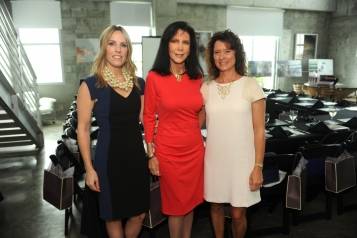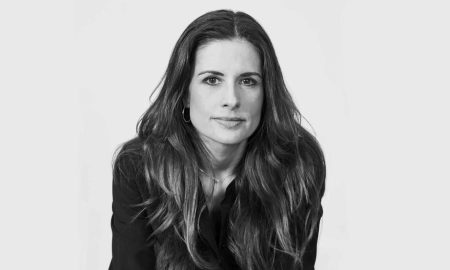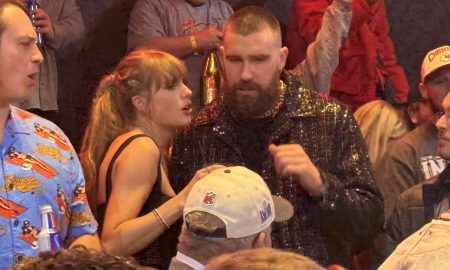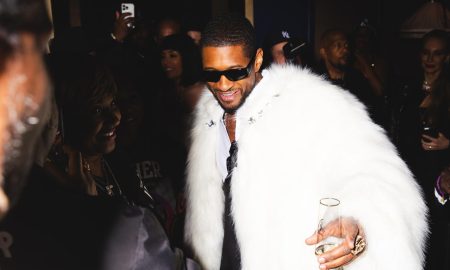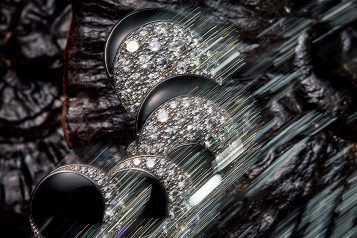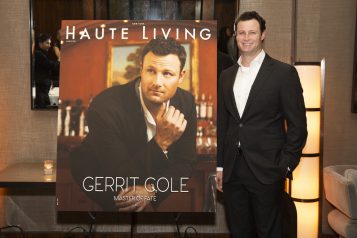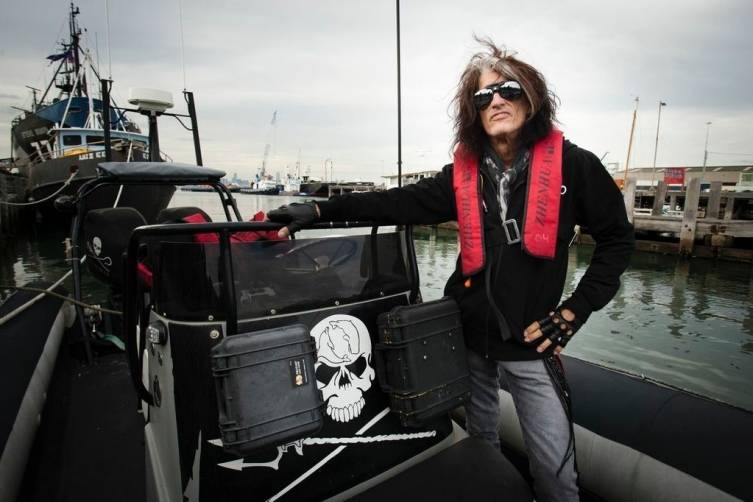
Joe Perry is one of the greats. Aerosmith‘s lead guitarist has been rocking for over 40 years, and naturally, his storied career has had its share of highs and lows. He’s finally sharing his story—(a lack of sex, or, more accurately, groupies), drugs, rock n’ roll and his tumultuous relationship with band member Steven Tyler—in his long-awaited book Rocks: My Life in and Out of Aerosmith, which is slated to hit shelves on October 7th. We chatted with the iconic musician, now 64, about his past, his present, his future and living on the edge.
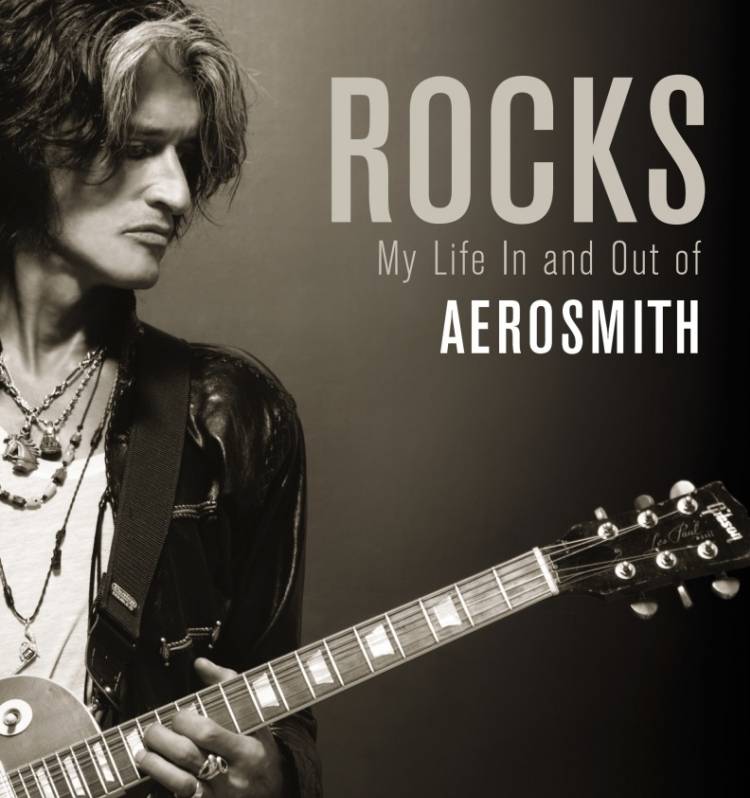
What prompted you to write this book now?
A few different things; really, it was like an emotional switch clicked. It was the fact that the band’s 40th anniversary was rolling around, and we were working on our last record for Columbia. It felt like it was time to do it, and lay it all down. Up until then, I felt like I had another thing to do with [Aerosmith], with solo things, whatever projects—I kind of had it on the back burner—and my wife said ‘Are you thinking about it?’ Emotionally, it was time. There were a number of things coming to a close and starting again.
Was anything particularly painful to relive while writing this book?
It was definitely harder than I thought it was going to be, to put some of those things in the book. Things in life are hard— whether it’s the death of a parent or whatever—you kind of think that you’ve got it dealt with, and that you don’t have to look in that box again. Writing a book like this, I had to open the boxes again. My emotions were high, but I decided [the hardest thing] would move the story along. There were times when it was really hard, but without a doubt I was overall better for writing it. I needed to put it out there. I made decision to put everything in there, whether it hurt or not.
There is a fascinating dynamic between you and Steven. You seem like brothers in the sense that you will always love them, but you butt heads pretty often. Is that true?
The band came first, and we were kind of cold; we wanted the band to be as good as it could be. If we were too close friends, we knew that it would be hard, learning how to record and make a band work. We had to be able to say to each other ‘You need to spend more time working on this’ or whatever. When it came to the band, we were open with each other; how we were feeling about progress we were making. Steven and I clicked on a musical level, but then there were things outside of the band that we both had an interest in, whether it was scuba diving or paragliding, spending time in the woods, hunting. We had a mutual taste for excitement.
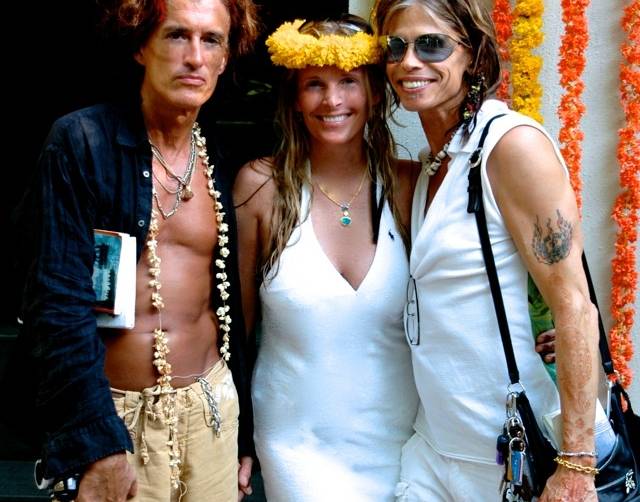
Photo Credit: Perry Collection
You write in the book that Steven almost ruined your marriage to Billie [his wife of nearly 30 years] by goading you into taking drugs. Have you forgiven him?
It was part of the package…you know what I mean? We slowly got to that place where I realized that nothing was going to change. Things are only going to change if something inspires them to. When I was a teenager, I could put up with [his flaws] because of what he brings to the party. We’ve had our ups and downs; obviously there’s definitely a real connection there. Our connection will always be there, whether we talk every day or go for a couple months without speaking.
[Former Aerosmith manager] Tim Collins forced the band to go to rehab when they were clean and sober. Was going to rehab when you were clean and sober the biggest indignity of your life?
It was definitely one of the final straws that put the whole band in a position where we realized we had to change things in a big way—to get Mr. Collins out of our lives, mainly. Frankly, it was a miracle that we all kept clean, but we were all in it together. He would come with us on the road and share bottles of Jack Daniels, and whatever drugs we could get. He cleaned up as far as the drugs went, but he didn’t deal with a bunch of other things. He wanted to keep us where we were. We were healthy, we had families, and basically we felt like we were being blackmailed. It was a gradual thing. Looking back, it was almost like we were in this cult, and the way he managed it he basically perverted some of the tools that we used to get sober. That was one of the things I wanted to get in the book, behind the scenes. On the front, you only see the success—having more and more hits, more and more success. It was really tough, as I explained in the book, my wife, Billie, coming from the outside and not knowing anything about Aerosmith from the ’70s; she didn’t know what we had lost. It wasn’t until she stumbled upon some of the magazines and platinum records that she realized how big the band was, and how successful it was. Every time Collins would come up with one of these obviously crazy threats, it was like we were doing something that no one had done before—having a second shot at a career and having success with it plus a family to take care of.
It was gradual—it didn’t happen overnight—over the course of the years, [Collins became] sicker and sicker and sicker; going off on us and forcing us to go to rehab like that when we were all sober was the final straw—more like a bale of hay, really. The problem is that he didn’t get healthy with the rest of us. He wanted to keep us in that sick place where we had to have therapists around and meetings, but meanwhile he wasn’t dealing with his own control issues. We were living normal lives; each one of us was going the way that we wanted. It was an incredibly creative and amazing time as far as the band goes. It was so off base, so misdirected [that he forced us to rehab] all because he didn’t get any better; he basically blackmailed us into living that way.
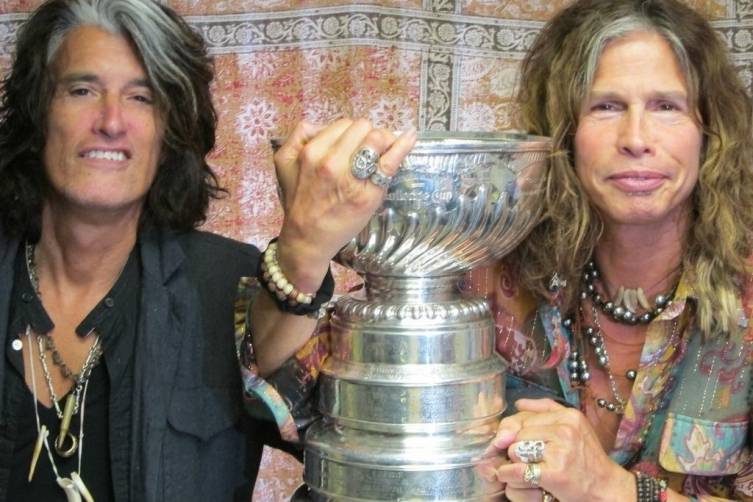
Photo Credit: John Bionelli
Johnny Depp wrote your forward and you say it was one of the most impactful relationships you’ve had, though you’ve only known him 3 years. How did you get so close so fast? How much do you have in common?
[Our friendship] started off mostly because he’s a stone cold bluesman. He loves the blues; it’s in his blood. He loves to play guitar and talk guitars and good music and is a really creative guy. He’s a painter, an all-around just really creative guy. Needless to say, he’s really intelligent and well-read; he’s an older man. We have a lot in common as far as the music goes. It’s one of those things where you bump into people and you feel like you’ve known them your whole life. He’s one of those people. We’re both big fans of each other. When we’re hanging out, we’re just hanging, listening to John Lee Hooker.
A shot of Jack Daniels clearly isn’t your pre-show ritual anymore. How do you focus?
That last hour before we go on, I literally warm up on guitar and we go through the set list; it’s always the last thing we take care of before we put the final notch in our stars or whatever. Figuring out what the set list is going to be is the most important thing we have to deal with, a constantly changing and evolving part of our show. For that last half hour I forget about everything else. Sometimes you really feel like going out there and exploding, and some days you don’t feel like you’re ready to have it all out there. It’s a thing that relies so much on your ability to let out whatever it is that drives you, and let that animal loose. I wake up and say ‘I have to turn into that animal today.’ I know for that last half hour I have to clip that switch and turn into that piece of me. It’s part of the game. That last five minutes before I walk on stage, I’m full of adrenaline. People can talk to me and I won’t be hearing them; they could be speaking French to me. They all go through it in their own ways, the rest of the guys. When the lights go down and the audience cheers, you get this literal rush of adrenaline and that’s what it has always been about.
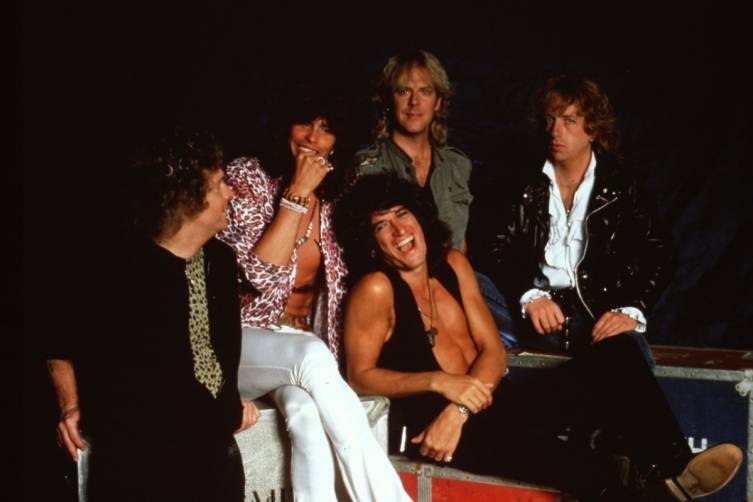
Photo Credit: Ron Pownall
The book stops in the present. What’s next in your future?
Right now my focus is the book tour; we’re putting that together now. I’m really excited about it: it’s a different kind of a tour, and a lot more condensed. I’m really anxious to hear feedback about what people think of the book. I’ve been working on this for a long time, and I’ve never been as frank or forthcoming with my emotions. [Otherwise] I’d like to do another solo album— I already have another six songs done—and I’d like some time off on a horse with my wife (not the same horse); we like to ride off in the wilds of [Vermont].
Will you cut another album with Aerosmith?
I expect that there will be [another album], but I’m not sure how much it’s going to take. I’ve been thinking about it; so much has changed in terms of my own record—how to release it, putting things out piece by piece like the way they used to in the ’50s, or as a full album. We definitely still have more music in us, and it’s going to come out at some point.
Meet Joe Perry in person on his Rocks tour on Oct. 15 at Barnes & Noble @ The Grove from 7-8:30 p.m. and Oct. 20 at Book Soup on Sunset Blvd. from 7-9 p.m.







